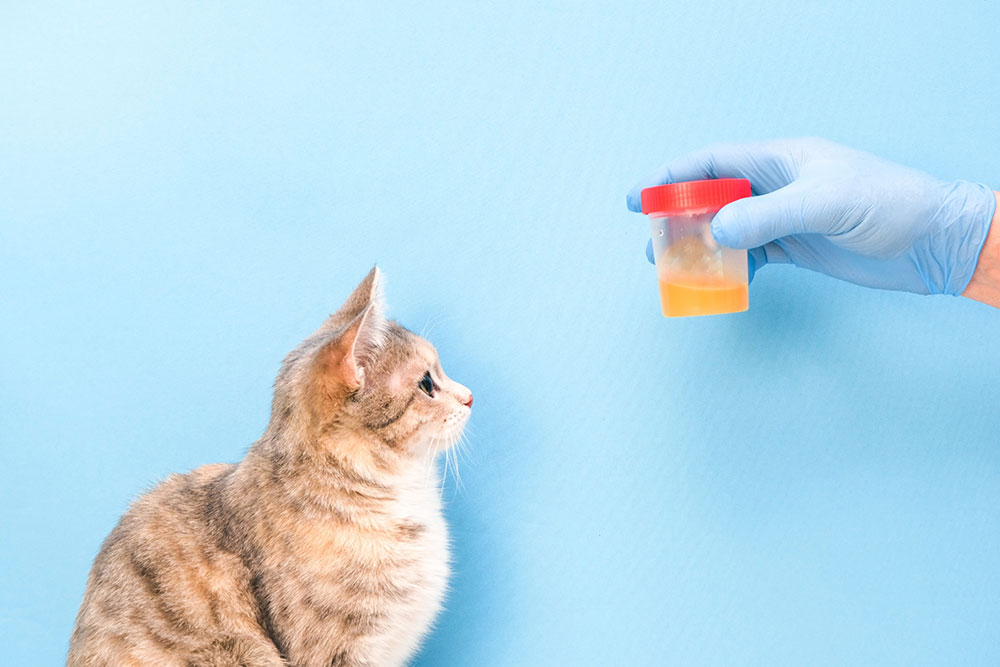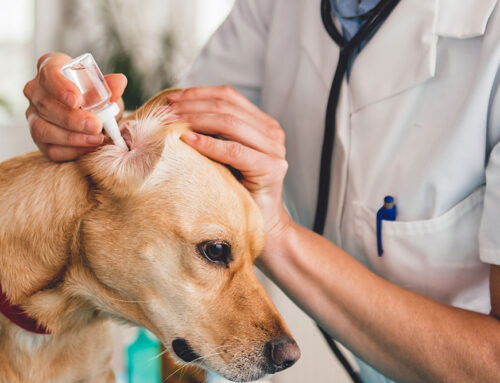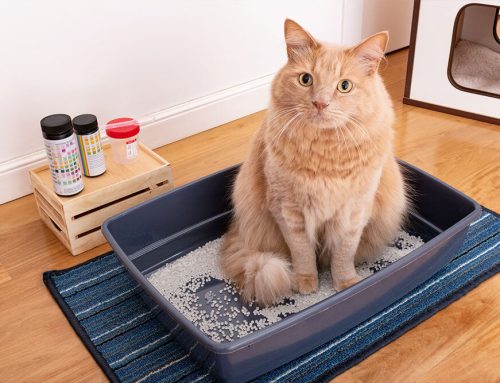Understanding Urinary Tract Infections in Pets: Signs, Treatment, and Prevention
Urinary Tract Infections (UTIs) are a common yet serious health issue in pets that can cause significant discomfort and lead to more severe complications if left untreated. Recognizing early signs, understanding treatment options, and implementing preventative measures are key to keeping your pet healthy.
At Lewiston Veterinary Clinic, we are committed to providing expert care for pets experiencing urinary issues, ensuring they receive timely and effective treatment.
Learn more about urinary tract infections in pets.
What is a Urinary Tract Infection (UTI) in Pets?
A UTI occurs when bacteria enter the urinary tract, leading to inflammation and infection. The urinary tract includes:
- Kidneys – Filter waste and produce urine
- Ureters – Carry urine from the kidneys to the bladder
- Bladder – Stores urine until elimination
- Urethra – Carries urine out of the body
If left untreated, UTIs can spread to the kidneys, causing serious complications such as pyelonephritis (kidney infection) or sepsis (systemic infection).
Causes of UTIs in Dogs and Cats
Several factors can contribute to UTIs, including:
- Bacterial infections – The most common cause, often due to coli or other bacteria entering the urethra
- Weakened immune system – Older pets or those with underlying conditions like diabetes are more susceptible
- Urinary stones or crystals – Can block urine flow and create an environment for bacteria to thrive
- Poor hygiene or grooming issues – Especially in long-haired breeds or pets with mobility issues
- Inadequate water intake – Leads to concentrated urine, increasing infection risk
Learn more about urinary stones in small animals.
Recognizing the Symptoms of a UTI in Pets
Common Signs of UTIs
- Frequent urination in small amounts
- Straining or pain while urinating
- Blood in the urine (hematuria)
- Strong-smelling or cloudy urine
- Accidents in the house or inappropriate urination
- Lethargy or decreased appetite
If your pet is showing severe symptoms like vomiting, fever, or extreme discomfort, seek veterinary care immediately. A complete urinary blockage (more common in male cats) is a life-threatening emergency.
Learn more about urinary obstruction in male cats.
Contact Lewiston Veterinary Clinic for urgent care.
Diagnosing Urinary Tract Infections in Pets
At Lewiston Veterinary Clinic, we use advanced diagnostic tools to accurately diagnose and treat UTIs:
- Urinalysis – Examines urine for bacteria, blood, crystals, and pH balance
- Urine culture and sensitivity test – Identifies the specific bacteria causing the infection and determines the most effective antibiotic
- Ultrasound or X-rays – Detects urinary stones, tumors, or structural abnormalities
- Blood tests – Checks kidney function and rules out underlying conditions like diabetes
Read more about diagnosing UTIs in pets.
Treatment Options for UTIs in Pets
Once a UTI is diagnosed, treatment typically includes:
- Antibiotics – Prescribed based on the specific bacteria identified in the urine culture
- Pain management – Anti-inflammatory medications may help relieve discomfort
- Increased hydration – Encouraging water intake helps flush out bacteria
- Dietary changes – Some pets benefit from prescription urinary health diets to reduce infection risk
It’s critical to complete the full course of antibiotics as prescribed, even if symptoms improve, to prevent recurrence and antibiotic resistance.
Learn about how diabetes in pets can affect urinary health.
Preventing Urinary Tract Infections in Pets
Effective Prevention Strategies
- Ensure your pet stays hydrated – Fresh water should always be available
- Maintain good hygiene – Regular grooming can prevent bacterial buildup
- Provide a balanced diet – Special urinary health diets can help prevent infections and stones
- Encourage frequent urination – Allow regular bathroom breaks to avoid urine retention
- Schedule regular veterinary check-ups – Routine exams help detect early signs of urinary issues

FAQs About UTIs in Pets
Can I treat my pet’s UTI at home?
No, UTIs require veterinary treatment with antibiotics. Home remedies may temporarily ease symptoms but won’t eliminate the infection.
How long does it take for a UTI to clear up in pets?
Most pets show improvement within 3-5 days of starting antibiotics, but the full course (usually 7-14 days) must be completed to prevent recurrence.
Can UTIs be a sign of something more serious?
Yes. Recurrent UTIs may indicate underlying conditions like diabetes, bladder stones, or kidney disease. Your veterinarian may recommend additional tests if infections keep returning.
Lewiston Veterinary Clinic: Expert Care for Pet Urinary Health
At Lewiston Veterinary Clinic, we provide comprehensive care for pets with UTIs and other urinary conditions. Our team uses advanced diagnostic tools and personalized treatment plans to ensure your pet gets the best possible care.
Book an appointment for a urinary health check-up.
By recognizing symptoms early, seeking veterinary care, and taking preventive measures, you can help your pet avoid the discomfort and complications of UTIs. Our experienced veterinary team is here to guide you every step of the way.




























Leave A Comment